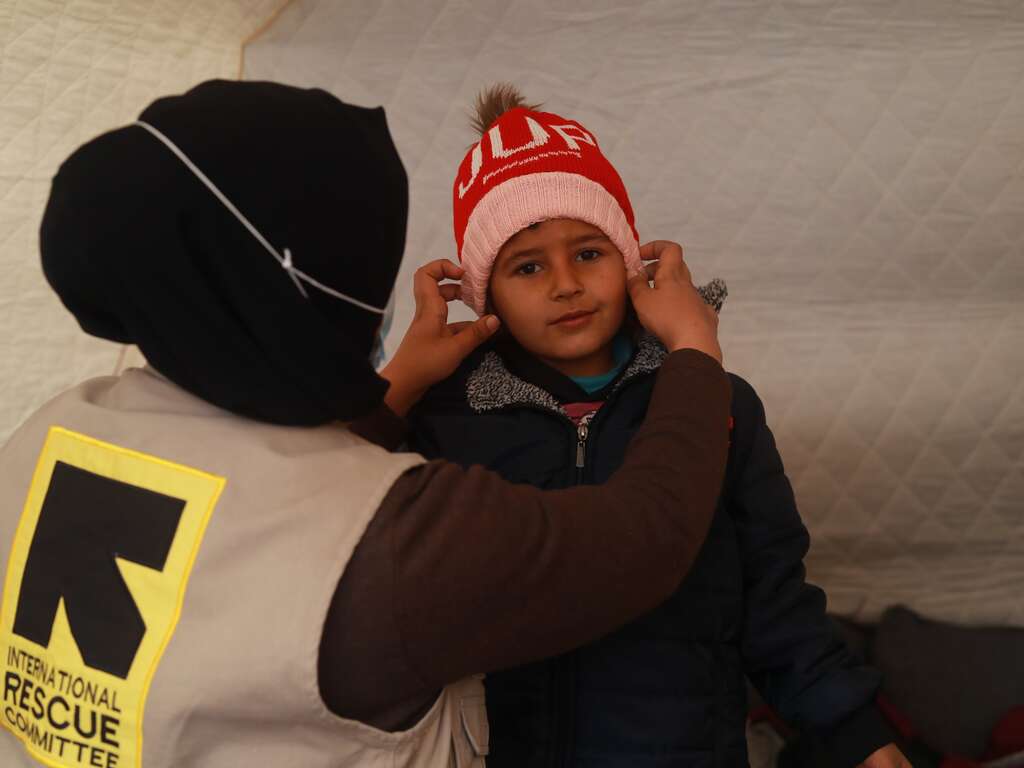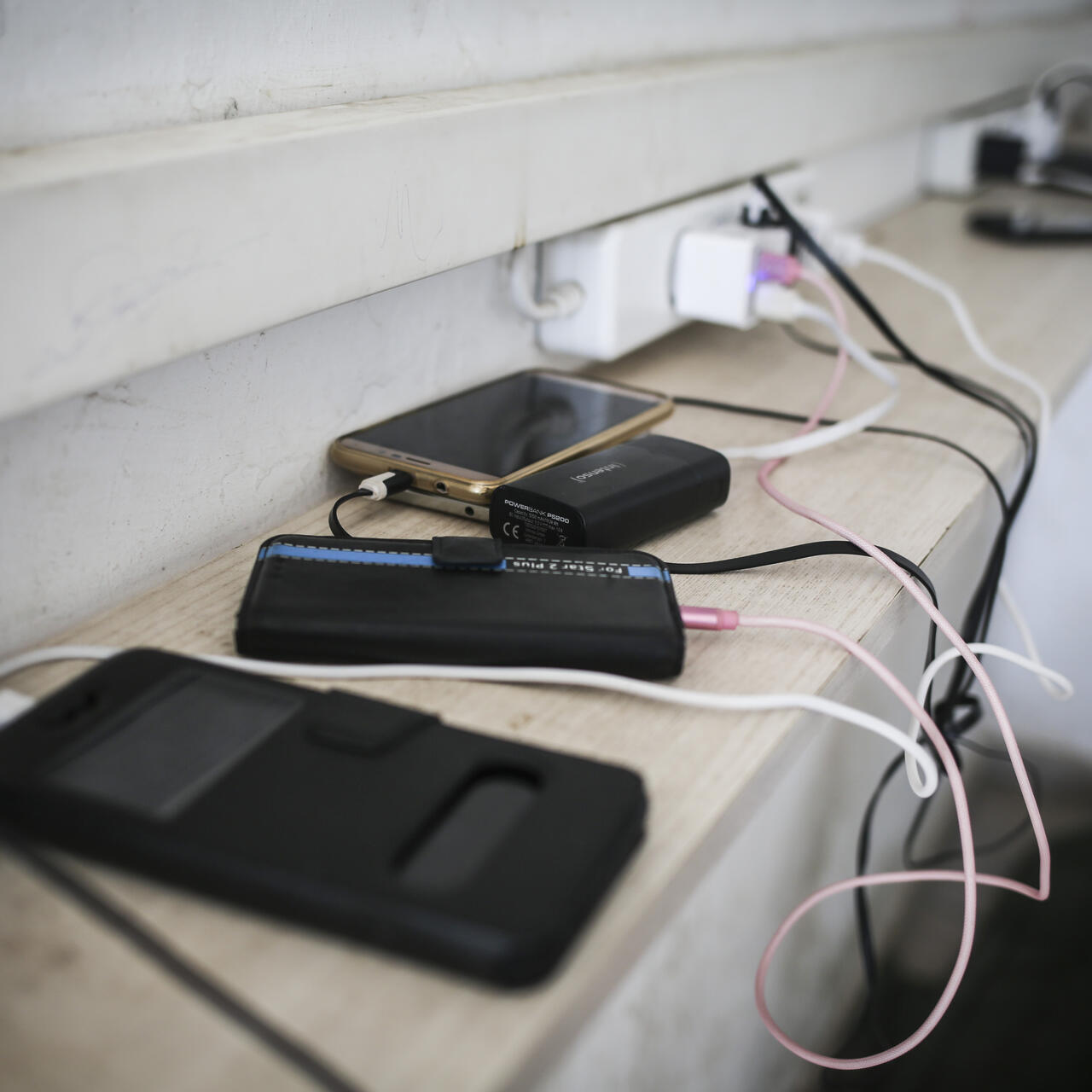
Refugees and vulnerable populations must be able to access lifesaving information about health and safety—especially today as the coronavirus pandemic sweeps across the globe. These communities are already vulnerable to conflict, displaced from their homes, and lacking necessary resources. They must be able to easily find timely, high-quality information that they can trust.
Signpost, an information and engagement project by the International Rescue Committee (IRC) and partners like Mercy Corps, Google, Microsoft, Twilio, Cisco, Trip Advisor and Box, uses social media and digital platforms to get critical information to those affected by crisis.
“We meet people where they are—digitally—in a way that recognises their needs and personal circumstances, and deliver contextualised information based on the unique and specific problems that they and their communities are facing,” says Signpost director Andre Heller.
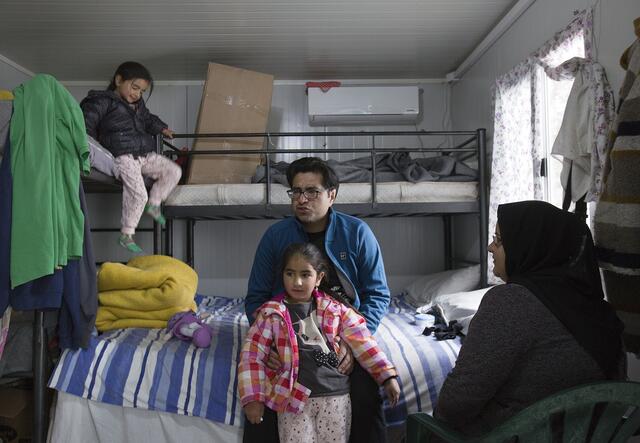
Signpost's contextualised and responsive approach to information services is informed by the IRC's work in protection and human rights, Heller explains. "It's an approach that has been lacking in general, but especially for those who are most vulnerable.”
Since being launched by the IRC with Mercy Corps in 2015, Signpost has reached over 1.5 million people across three continents—in their own contexts and languages. In Greece, Signpost created an app to help refugees find lodging, transportation, and medical services and went on to develop ways to help with the asylum process. In Italy, Signpost used Facebook to reach asylum seekers with information about essential services, answer questions from users, and dispel misinformation about COVID-19. In El SalvaEl Salvadordor and Honduras, Signpost created the CuentaNos platform to connect people affected by urban violence with the information and support they need, and now also provides content about the coronavirus and where to get help.
We flip the paradigm of information services through Signpost—we start with the people we aim to help, rather than “our” messages.
We flip the paradigm of information services through Signpost—we start with the people we aim to help, rather than “our” messages.
“We’re shifting the power, which is normally held by service providers themselves, back to people affected by crisis,” says Heller. “We flip the paradigm of information services through Signpost—we start with the people we aim to help, rather than “our” messages. It’s a whole new approach towards treating people with the dignity and respect that they deserve, and recognising their own agency in navigating their way through difficult situations.”
Now, Signpost is developing new strategies in an effort to reach vulnerable people on the move with information about the coronavirus and its broader impact on services they seek.
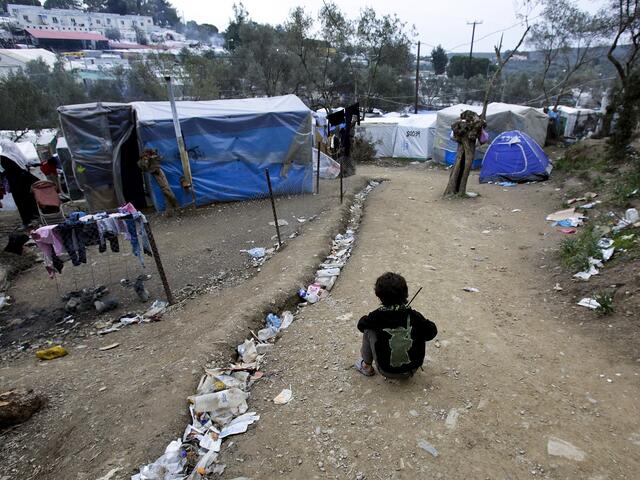
Sharing information in a time of crisis
The coronavirus is shining a light on how information is so difficult to access for many people around the world.
“Given the exhaustive amount of general information, conflicting information, and misinformation that's out there, everyone can now understand what life might be like for a population living in crisis,” says Heller. “It’s difficult to know where to turn to for specific questions about what you your family are going through. And with so many services shut down, nobody really knows what's operating or functioning at this time.”
In response to the pandemic, Signpost tailored its programme in Italy to help asylum seekers understand policy changes and how to access health services.
“We were already sharing communications about how public health measures and isolation orders affected their daily lives, and updating them with policy changes that were specific to their circumstances,” says Heller. “We’ve had thousands of exchanges related to people's specific circumstances and how we can help them.”
We’ve had thousands of exchanges related to people's specific circumstances and how we can help them.
On its Refugee.info website, Signpost created a blog post about how the coronavirus outbreak spread in Italy and measures the government was taking to reduce transmissions. It also published a post outlining common symptoms and specific numbers to call based on location. Community moderators further guided asylum seekers on social media through the details of how the pandemic impacts their legal status, health care access, and housing and economic security programmes.
Reaching people where they already are
To understand exactly what people need, Signpost conducts information needs assessments, engaging with community members and leaders.
“Through that engagement, we learn where people go for information and how they share it, as well as which existing information resources are out there,” Heller says. “We’ll then design a programme that reaches people in the ways that they prefer and in the languages they speak.”
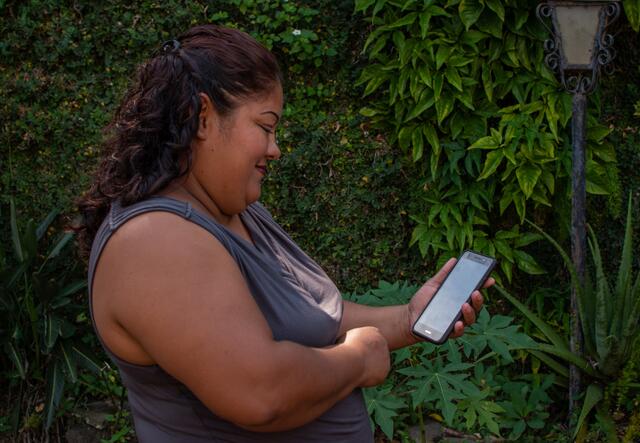
In Italy, many people were using Facebook, so Signpost created a Facebook page and group to share information. In El Salvador, WhatsApp is free to use, so Signpost worked with its partner company Twilio to package online resources in a format that’s easy to distribute and navigate on WhatsApp.
If there are helpful and existing resources for a certain population, Signpost finds ways to complement and network with them, not replace them. It also assembles a team of moderators from affected communities to source relevant, inclusive information tailored to people’s specific needs.
For example, many asylum seekers in Italy were asking questions about when temporary visas were set to expire. “We triangulated the right information, and we wrote an article that explained it all in simple terms,” says Heller. “It turned out that there was actually an extension to this expiration, but it wasn’t advertised well and it was only in Italian, which many people didn’t speak.”

Planning for the future
Signpost will continue to expand its offerings to reach people in crisis. It plans to launch a Refugee.info website in Greece for up-to-date information about coronavirus, and devise new strategies to address the ongoing effects of coronavirus.
“While we're aiming to solve some problems in the here and now, this pandemic will be with us for a long time to come,” says Heller. “We need to be making decisions that consider not just today’s challenges, but also how we’re going to be working a year from now and what people are going to need."
"We’re working to get ahead of the curve for our collective future.”
